Science & Nature
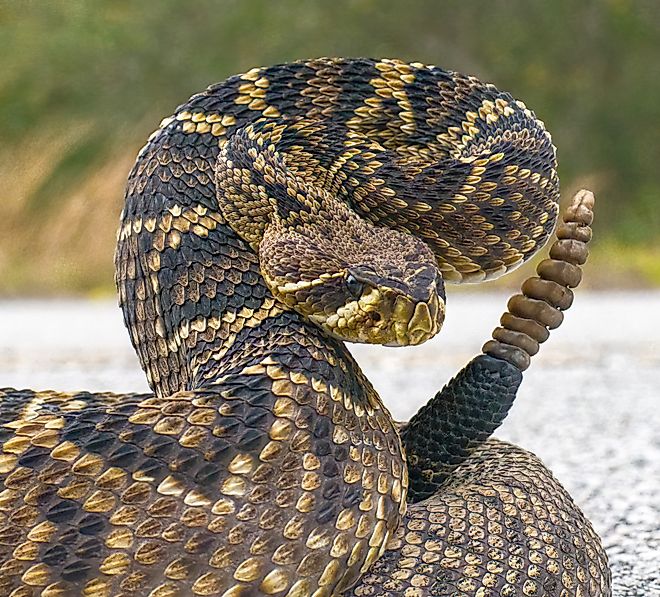
The Venomous Snakes Of South Carolina
South Carolina is home to six venomous snake species, each with unique characteristics and habitats. Understanding these venomous species helps promote safe coexistence with South Carolina's rich wildlife.
4 Most Venomous Spiders in Louisiana
Meet Louisiana's four most venomous spiders—discover where they hide and how to dodge their bites while enjoying the Bayou’s wild charm!

What Is the Length of a Year on Each Planet?
A planet's year is the time it takes to orbit the sun, which depends on its distance from the sun; closer planets orbit faster due to stronger gravity.

The Venomous Snakes Of Missouri
Discover the venomous snake species of Missouri, from the beautiful western pygmy rattlesnake to the dangerous timber rattlesnake.
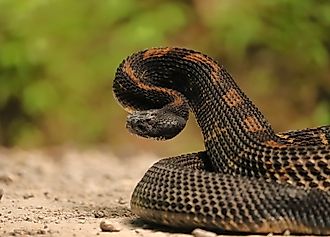
4 Most Venomous Spiders in Mississippi
Think you can handle the bite? Dive into the four most venomous spiders in Mississippi and find out how to identify these dangerous critters!

The Venomous Snakes Of Illinois
Illinois is home to stunning natural attractions and six venomous snakes, including rattlesnakes, copperheads, and cottonmouths.

5 Most Venomous Spiders in Florida
Florida has an abundance of spiders, but there are only five types of venomous spiders that residents or travelers to the state should be wary of.
The Venomous Snakes Of Alabama
As a hot, humid place with plenty of natural cover, Alabama is a snake haven. Around 50 species of serpents slither throughout the state.
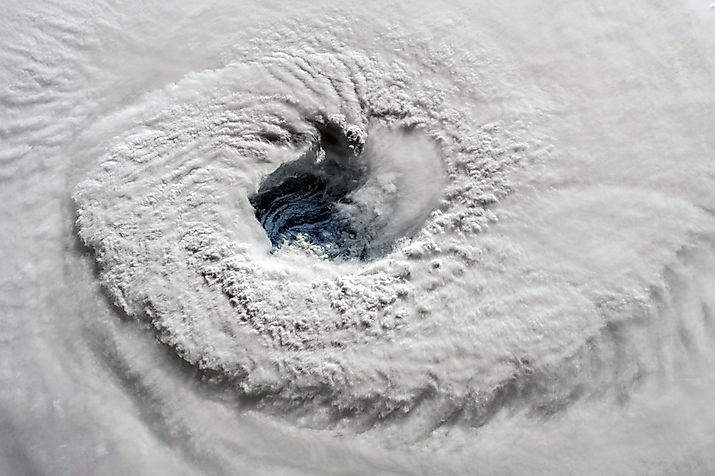
What Is the Eye of a Hurricane?
Here is what to know about the eye of the hurricane, including how it forms, some of its main characteristics, and why it is deceptively calm.
6 Most Venomous Spiders in Oklahoma
Many spiders call Oklahoma home attracted by its warm climate, which helps them hunt for prey and reproduce. Learn more about the most venomous!
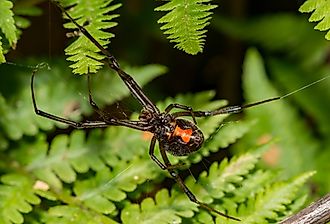

Which State Has More Venomous Snakes: Florida or Arkansas?
Discover which of the two states, Florida or Arkansas, has the most venomous snake species, from the iconic cottonmouth to the vibrant coral snake.

5 Most Venomous Spiders in Hawaii
Hawaii is one of the most alluring island destinations known to the tourism industry, but these five venomous spiders are not to be messed with!

The Strongest And Deadliest Hurricanes Ever Recorded
The strongest hurricane ever recorded, Hurricane Allen (1980), reached wind speeds of 190 mph. Learn about the costliest and deadliest Atlantic hurricanes.
4 Most Venomous Spiders in Arkansas
Ready to meet Arkansas's most notorious residents? Discover the 4 most venomous spiders in the state and learn how to spot them—safely, of course!
Countries By Number Of Military Satellites
Find out which countries lead the race in military satellites and how they use these assets for defense, intelligence, and communication.
Best Fall Hikes In Iowa
These hikes in Iowa are ideal for a fall vacation, exploring the state's expansive landmarks, from caves to forests and more.

Exoplanets
Exoplanets expand our understanding of the universe. This article covers what they are, notable discoveries, and their potential for hosting life.
Black Holes
Black holes pull in everything nearby, even light. They play a major role in galaxy formation and remain one of the universe's biggest mysteries.
Best Fall Hikes In North Carolina
North Carolina is stunning in the fall season, as seen in hikes such as Looking Glass Trail, Crabtree Falls Trail, and more.

The Most Snake Infested Lakes in New Hampshire
These lakes in New Hampshire are home to a variety of snakes such as the northern water snake as well as the eastern hognose snake.

The 9 Deadliest Animals in Indiana
Learn about Indiana's deadliest animals, including which creatures pose the most danger to humans and their habitats.

The 10 Deadliest Animals In North Dakota
It is important to be cautious of these deadly animals found in North Dakota, as they can pose a serious threat to human life and well-being.

The Most Snake Infested Lakes in Rhode Island
While no deadly snakes are found here, these are some of the most snake-infested lakes in Rhode Island, which can make for unpleasant encounters!

The 12 Deadliest Animals in Minnesota
This list of deadly animals in Minnesota may be surprising; however, animals such as deer, bees, and mosquitoes can be a real threat to people.

Native Fish of the United States of America
The USA is home to a wide range of native fish species, each playing a key role in ecosystems and local cuisine across the country. Full table included.

The 11 Deadliest Animals in Maryland
Discover Maryland’s deadliest animals, from venomous snakes to disease-carrying insects. Learn how these creatures command caution and respect.

The Most Snake Infested Lakes in Colorado
It may not be all tranquil around the lakes and rivers; snakes also love the hospitable atmosphere of Colorful Colorado. Find the most snake-infested lakes.
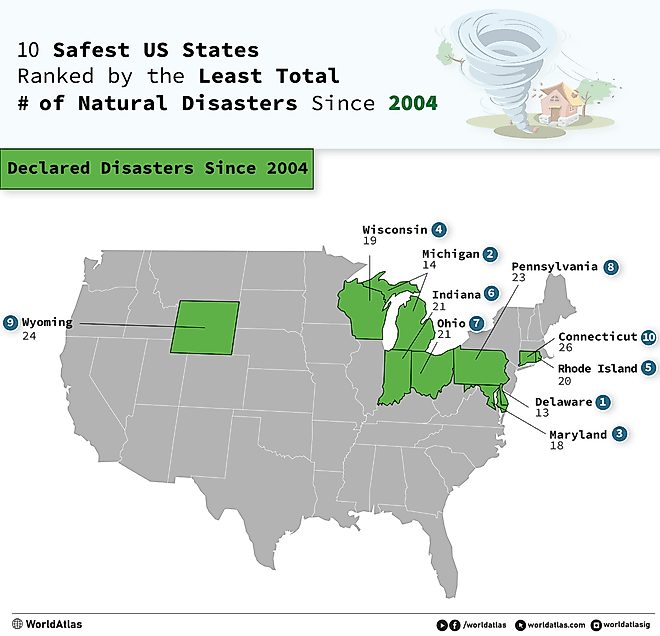
10 Safest States From Natural Disasters
These ten states in America are the safest from natural disasters, thanks to plenty of natural features and formations that protect them from disasters.
China's Hydropower Dilemma Is Caused By Drought
Droughts are disrupting China's hydropower, leading to energy shortages and increased fossil fuel use, challenging its green energy strategy.
The World's Costliest Earthquakes
While the loss of human life is always the main concern of any natural disaster, it is often the case that the economic toll is just as severe.
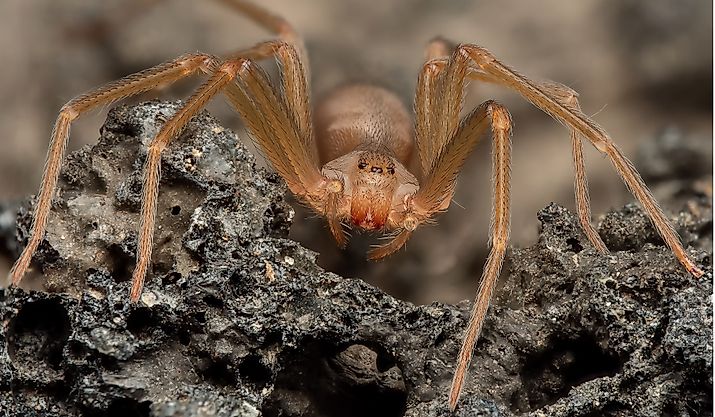
The 12 Deadliest Animals in Georgia
When visiting Georgia, it's important to be wary of these deadly animals, including black widow spiders, wild boars, and more.
Which State Has More Venomous Snakes: Florida or Louisiana?
Both Florida and Louisiana are known for their prominent population of snakes and this article goes in-depth into which state has more venomous species.
The 11 Deadliest Animals in Utah
Discover more about why these animals are considered the eleven deadliest animals in Utah, including Black Widow Spiders, Elk, and more.

The 8 Deadliest Animals in Maine
If you are hoping to educate yourself about the furry, fuzzy, and finned denizens that call Maine home, then beware of these deadliest animals.

South America's Battle With Droughts That Cause Wildfires
Due to dry spells and rising temperatures, South America is experiencing unprecedented and massive wildfires, which are causing widespread concern.

The 13 Deadliest Animals in New Hampshire
Discover the deadliest animals in New Hampshire, from black widow spiders to black bears. Learn how to stay safe during your outdoor adventures.

Is The Panama Canal Going To Dry Up?
This article posits the idea of whether or not the Panama Canal will dry up, while also giving a brief history on the canal and its significance.

Australia's Struggle for Water Security
Australia has been hit with extreme droughts driven by climate change, which have deeply affected farmers, local animal species, and the economy.